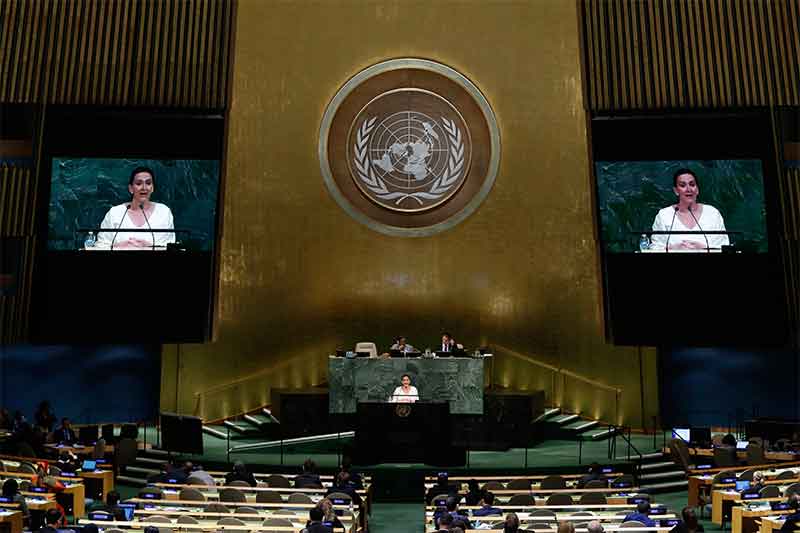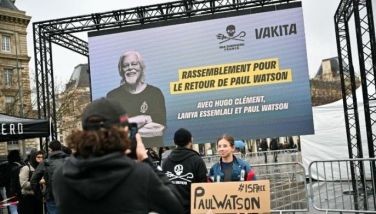50 nations ink UN nuclear ban treaty opposed by big powers

Vice-President Gabriela Michetti of Argentina addresses the United Nations General Assembly Wednesday, Sept. 20, 2017, at the United Nations headquarters. AP/Frank Franklin II
UNITED NATIONS — Fifty countries on Wednesday signed a treaty to ban nuclear weapons, a pact that the world's nuclear powers spurned but supporters hailed as a historic agreement nonetheless.
"You are the states that are showing moral leadership in a world that desperately needs such moral leadership today," Beatrice Fihn, executive director of the International Campaign to Abolish Nuclear Weapons, said as a signing ceremony began.
Before the day was out, 50 states as different as Indonesia and Ireland had put their names to the treaty; others can sign later if they like. Guyana, Thailand and the Vatican also have already ratified the treaty, which needs 50 ratifications to take effect among the nations that back it.
They would be barred from developing, testing, producing, manufacturing, otherwise acquiring, possessing or stockpiling nuclear weapons "under any circumstances."
Seven decades after the United States dropped two atomic bombs on Japan during World War II — the only use of nuclear weapons — there are believed to be about 15,000 of them in the world today. Amid rising tensions over North Korea's nuclear and missile tests, U.N. Secretary-General Antonio Guterres said Tuesday that the threat of a nuclear attack is at its highest level since the end of the Cold War.
"This treaty is an important step towards the universally held goal of a world free of nuclear weapons," he said Wednesday.
Supporters of the pact say it's time to push harder toward eliminating atomic weapons than nations have done through the nearly 50-year-old Nuclear Non-Proliferation Treaty.
Under its terms, non-nuclear nations agreed not to pursue nukes in exchange for a commitment by the five original nuclear powers — the U.S., Russia, Britain, France and China — to move toward nuclear disarmament and to guarantee other states' access to peaceful nuclear technology for producing energy.
More than 120 countries approved the new nuclear weapons ban treaty in July over opposition from nuclear-armed countries and their allies, who boycotted negotiations.
The U.S., Britain and France said the prohibition wouldn't work and would end up disarming their nations while emboldening "bad actors," in U.S. Ambassador Nikki Haley's words.
French Foreign Minister Jean-Yves Le Drian has called the treaty "wishful thinking" that is "close to irresponsible." The nuclear powers have suggested instead strengthening the nonproliferation treaty, which they say has made a significant dent in atomic arsenals.
Brazil was the first country to sign onto the ban Wednesday, followed by nations from Algeria to Venezuela.
"Those who still hold nuclear arsenals, we call upon them to join this date with history," Costa Rican President Luis Guillermo Solis said as he prepared to sign.
- Latest
- Trending

































